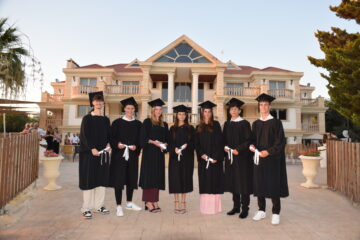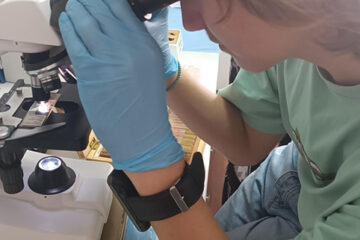Challenging students to become thinkers, problem solvers and appliers of knowledge
Published by TLC Private School on

Challenging students to become thinkers, problem solvers and appliers of knowledge
If you were to step back and take an overview of the world and all that’s happening in it, you’d recognise that we’re in a time where multiple problems, some interlinked, fill us with fear for the future; Sino-American relations, economic meltdown, a hiatus in education and fears of a wave of mental health issues, all of them linked in some way to the Covid-19 pandemic. It would be easy under such circumstances to worry about what the future may bring and that may well be prescient if it wasn’t for one of the attributes that have made the human race the dominant species on earth; the ability to problem solve. Early humans became more efficient in hunting, shelter building, agriculture and more by the development and refining of tools as a solution to the problems that impeded their development and security. Later, as our brains developed, problems were also solved by reasoning.
You would be correct in asserting that most, if not all of the world’s problems have been caused by humans and maybe there is some deep rooted psychology that says we like to create problems just so we can show how we can solve them. In any case, our hope for the future must be that we can educate and develop our children to be able to solve increasingly more complex and potentially more dangerous problems. The fact that the human race is still here and thriving after hundreds of thousands of years must give us hope that our time isn’t up yet. Many times in the recent and distant past, humans have had cause to believe they were close to the apocalypse, only for solutions to be found that ensured the future of our species; the Black Death, world wars, Spanish flu to name but three.
You would imagine that education would be strongly focused on developing problem solving skills, even perhaps considering potential problems before they arise and create solutions to them but an article in the Financial Times newspaper this week starkly identified humans’ propensity to believe the worst case scenarios won’t happen until they do – Covid-19 being a prime example of this. The article showed how we don’t prepare for pandemics despite having experienced them as a warning before, we don’t prepare properly for climate events – Hurricane Katrina for example and, further back in history, seismological events like Vesuvius and Pompeii. There are a lot of psychological, economic and potentially logical reasons why we don’t but this doesn’t mean that we shouldn’t. This is where education should, but doesn’t always, come in.
The renowned scientist and author Roger Lewin put it succinctly when he said ‘Too often we give our children answers to remember rather than problems to solve.’ Whilst education is slowly recognising that we don’t always need to remember the answers – Google will do that for us – it is still held back by the belief that we should all be passing exams to prove our ability when so often exam certificates prove only our ranking in a test of memory. Look up the meaning of words we associate with ability like ‘clever, smart, intelligent’ and the definitions do not mention the ability to ‘remember’ things. For a real test of ability, we should be monitoring the thought processes young people go through when solving problems like the ‘Honeybee Problem’ on TED-Ed or the range of problems posed on www.brilliant.org.
Through TLC’s introduction of the Extended Project Qualification, the school is challenging students to become thinkers, problem solvers and appliers of knowledge, skills and understanding to create new knowledge and to solve the world’s problems. Take another look at the news and you’ll understand why.


